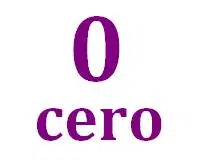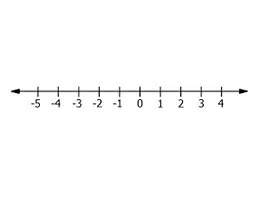 The etymological origin of the term zero is found in a classical Arabic word that can be translated as “empty.” This word passed into Hispanic Arabic, then into Latin and finally into Italian, the language from which we received it.
The etymological origin of the term zero is found in a classical Arabic word that can be translated as “empty.” This word passed into Hispanic Arabic, then into Latin and finally into Italian, the language from which we received it.
Zero is the number that refers to a null value or the absence of quantity . Therefore, when a number is multiplied by zero, the result of the operation is always zero.
Suppose a child takes a jar containing ten cookies and, after a few minutes, eats those ten cookies. The jar, therefore, now has zero cookies : this is equivalent to saying that it does not have any cookies or that it is empty .
The sign that represents zero is 0 . When this sign is located to the right of an integer in the decimal system, what it does is multiply the value of this number by ten. In this way, if we add a 0 to the right of the number 1 , the number 10 is formed (1 x 10 = 10).
It should be noted that zero is also often used as a starting point or origin . Kilometer zero , in this sense, is the place from where you start counting a mileage. A road, therefore, begins at kilometer zero. A scale, for its part, begins to calculate weight from the value zero . If we place an apple weighing 100 grams on it, we will see how its scale, if expressed in grams, goes from 0 to 100 .
In this sense, we can also speak of "day zero" to refer to the moment in time in which a stage begins. For example, the day on which a company is founded or we arrive to a new country in search of a radical change in our life. In this way, day zero divides our existence into two parts and articulates them so that we can compare and link them.
This derives from its use in mathematics , where it not only serves to express a zero number of elements but also to divide negative numbers from positive numbers and also to carry out arithmetic operations between them. In general, when we think about the number zero we consider it useless or irrelevant, but science does not assign any qualitative value to it.
 For mathematics, zero is not "worrying", it does not alert us that "there are no apples left", but rather it is a point between the infinities of the numerical scale that allows various accounts and measurements to be carried out, in addition to give rise to the determination of certain very useful rules for operating with the rest of the numbers.
For mathematics, zero is not "worrying", it does not alert us that "there are no apples left", but rather it is a point between the infinities of the numerical scale that allows various accounts and measurements to be carried out, in addition to give rise to the determination of certain very useful rules for operating with the rest of the numbers.
When we talk about numbers, it is very important to remember that there are several officially accepted numbering systems , that is, sets of symbols organized according to a series of rules that limit their generation so that all the numbers obtained can be considered valid. Among the most used number systems are binary, hexadecimal and decimal.
We are so used to using the latter in everyday life that we assume that zero always acts in the same way, that it modifies the rest of the numbers in the same way. However, it all depends on the numbering system and its rules ; For example, while in decimal 10 is read "ten", in binary it corresponds to "two".
The idea of zero, finally, refers to the absolute or complete lack of something : “The person who came today showed zero interest in buying the house” , “Since I have worked for this company I have had zero problems with my boss” , “ "I have zero desire to clean my room, but if I don't I won't be able to get in."
